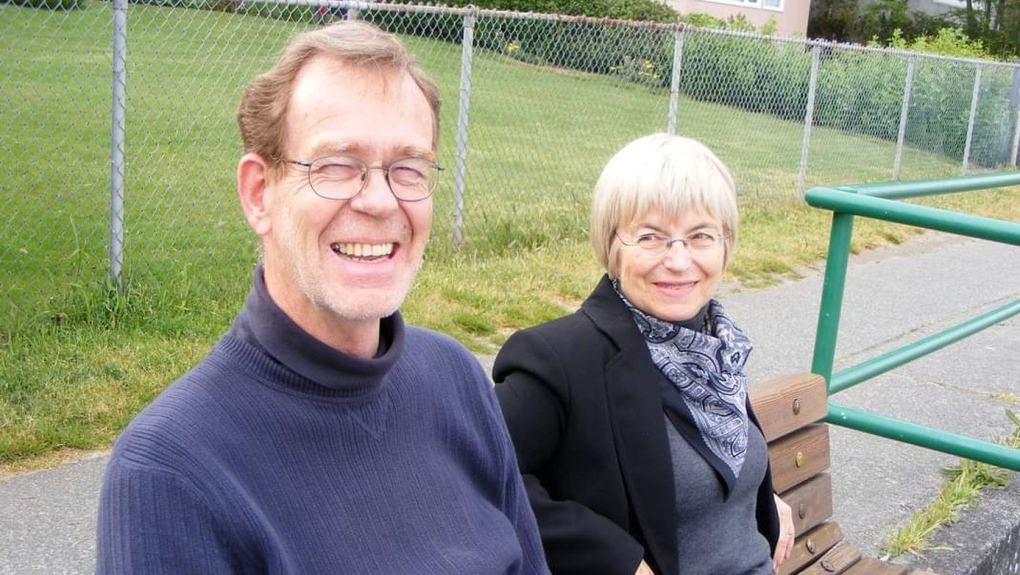Latest News
- There was no winner for the $80 million Lotto Max jackpot, and the prize was rolled over for the fifth consecutive time.
- How the N.W.T. Polar Bear License Plate Became a Collector's 'Holy Grail'
- "Astronomical ticket prices for the 2026 World Cup in Toronto; fans' access to games at risk"
- Carney names new Canadian ambassador to US: former BlackRock executive
- Canadian Health Minister Says US Health Institutions Can No Longer Be Trusted
Latest Ads
-
Jasmine Jewel
Call
-
Omidan group
Call
-
Amir Madanpour
Call
-
Dimo studio
Call
-
Yorkacademy
Call
-
Maryambagheri
Call
-
Shishlix Restaurant
Call

'Big frustration': How a limited MAID window affects Alzheimer's patients
In 2017, Marie Wilson, a woman from Alberta, was suffering from worsening Alzheimer's disease and requested her own death. He still retained cognitive alertness and could have complex conversations, but these conversations might last an hour and a half instead of the usual 15 minutes.
He also began to withdraw from the world as the disease progressed: He kept coffee cups in bathroom cabinets and spoons under pillows; He needed help getting dressed and had lost bladder control.
A well-educated individual with three college degrees, Wilson stopped studying and began binge-watching Disney musicals.
"Talking to my mom was like watching a novice driver parallel park," says Wilson's son, Campbell.
Before receiving his self-inflicted death, Wilson held an intimate house party with family and friends. At this party, he would smile and lean forward as if ready to speak, but then lose his train of thought and just say, "It doesn't matter."
His opportunity to qualify for euthanasia appeared to be closing – it is illegal to offer euthanasia when someone with a terminal illness loses the mental capacity to consent.
"Advanced requests weren't available, and that was very frustrating for my mom," says Campbell.
But that is no longer the case in Quebec, where a person with a serious, incurable disease like Alzheimer's can request euthanasia months or years before their illness prevents them from consenting. The move has been praised by patients and advocates who believe people with Alzheimer's should decide whether they want to live through the stages of their disease. But this issue has also caused confusion and criticism from some in the medical community who raise ethical and legal questions.
As for Wilson, she was able to go to her doctor and say, "I'm ready."
But Campbell says her mother wanted to request euthanasia beforehand.
Wilson was diagnosed with dementia in 2012 and began to decline rapidly in 2017. His doctors had time to observe the speed and signs of his decline.
Dr. Konya Troughton, president of the Canadian Association of Euthanasia Evaluators and Providers, says that the progression of an Alzheimer's patient's disease and their window of eligibility varies greatly from case to case.
Neurological diseases accounted for 12.6% of people who died by suicide in 2022. Of those, which include Parkinson's disease and ALS, dementia accounts for 9 per cent, representing 150 people, as Statistics Canada data shows.
They must be in advanced stages of the disease, but still able to explain and consent to their diagnosis. says Troughton, who has offered euthanasia in British Columbia, Alberta and Ontario since 2016.
Sandra DeMontigny, a resident of Louis, Quebec, credits her province for fighting to advance euthanasia in Canada. He has begun to formulate personal criteria that mean he is ready for this procedure.
For the advanced application, patients must detail the circumstances in which they want to euthanize, such as losing bowel control or forgetting their children's names.
DeMontigny, 45, knew he wanted to request euthanasia when he was diagnosed with Alzheimer's at age 39.
DeMontigny saw the sadness in his father's eyes, who suffered from Alzheimer's — the same disease his mother had — and it was like he was saying, "Save me."
news source
Suggested Content
Latest Blog
Login first to rate.
Express your opinion
Login first to submit a comment.
No comments yet.


































